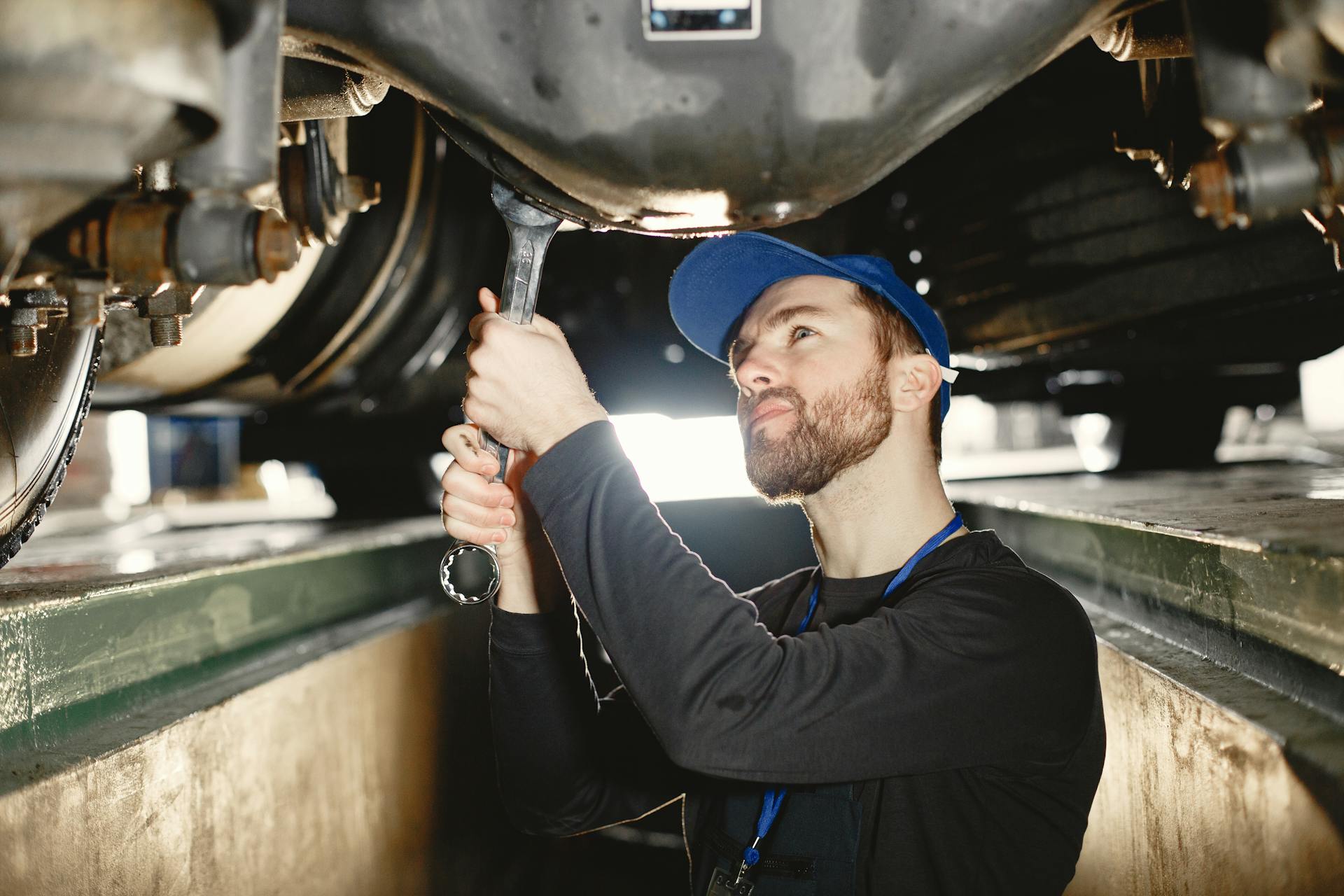
If you damage an unattended vehicle, the best thing to do is to leave a note. This note should include your name, address, phone number, and insurance information. It is also a good idea to take a picture of the damage before you leave. If you do not have insurance, you should still leave a note with your contact information. You may also want to consider finding the owner of the vehicle and telling them what happened.
What should you do if you accidentally damage an unattended vehicle?
If you accidentally damage an unattended vehicle, you should take responsibility for your actions and take steps to rectify the situation. Depending on the severity of the damage, this may involve contacting the owner of the vehicle and/or filing a police report. You should also be prepared to pay for any repairs that may be necessary.
If you cause only minor damage to an unattended vehicle, such as a small dent or scratch, you may not need to take any formal actions beyond leaving a note for the owner with your contact information. In this case, it is up to the owner to decide whether or not to pursue the matter further. If the damage is more significant, however, you will need to take additional steps.
If you believe that you have caused serious damage to an unattended vehicle, the first thing you should do is try to locate the owner. This may involve checking nearby businesses or residences for information. If you are unable to find the owner, you should then contact the police. Once the police arrive, you should file a report and provide them with any relevant information, such as your contact information and insurance information. The police will then likely contact the owner of the vehicle and begin an investigation.
At this point, you should also contact your insurance company to begin the claims process. Your insurance company will likely require you to pay a deductible, and they may also non-renew your policy if you have been found at fault for the accident. In serious cases, you may also be sued by the owner of the vehicle for damages.
No matter the situation, it is important that you take responsibility for your actions if you damage an unattended vehicle. By taking quick and appropriate actions, you can help to minimize the impact of the accident and potentially avoid legal and financial repercussions.
On a similar theme: Insurance Pay
Should you leave a note if you damage an unattended vehicle?
It is always a good idea to leave a note if you damage an unattended vehicle, even if the damage is minor. This shows that you are responsible and considerate, and it may help to avoid any further issues.
If the damage is more significant, such as a big dent or a smashed window, then you should definitely leave a note. Not only is it the right thing to do, but it could also help to prevent any legal issues. The owner of the vehicle may be able to prove that you were the one who caused the damage, and if you don't leave a note, you could be liable for the repairs.
Of course, there are always exceptions to the rule. If you are in a hurry and don't have time to leave a note, or if you are in a dangerous situation, then it is understandable if you don't. But in general, it is always best to err on the side of caution and leave a note if you damage an unattended vehicle.
What information should you include in a note if you damage an unattended vehicle?
If you damage an unattended vehicle, you should include the following information in a note:
-Your name -Your contact information -A brief description of what happened -An apology
Dear [Owner of Vehicle],
I am so sorry for damaging your vehicle. I did not mean to and I hope you can forgive me. Here is my information in case you would like to get in touch with me:
[Your Name] [Your Contact Information]
Again, I am really sorry and I hope you have a good day.
Sincerely,
[Your Name]
Discover more: Vehicle Loses Contact
What are the legal consequences of damaging an unattended vehicle?
There are a few different legal consequences that can come from damaging an unattended vehicle. The first consequence is that the person who damaged the vehicle can be charged with a crime. The second consequence is that the person who damaged the vehicle can be sued by the owner of the vehicle. The third consequence is that the person who damaged the vehicle can be sued by the insurance company of the owner of the vehicle.
If the person who damaged the vehicle is charged with a crime, they could be facing a misdemeanor or a felony charge. If the person is charged with a misdemeanor, they could be facing up to 1 year in jail and a $1,000 fine. If the person is charged with a felony, they could be facing up to 5 years in jail and a $5,000 fine.
If the person who damaged the vehicle is sued by the owner of the vehicle, they could be responsible for paying for the repairs to the vehicle. If the person is sued by the insurance company of the owner of the vehicle, they could be responsible for paying for the repairs to the vehicle as well as the deductible that the insurance company has.
Recommended read: Repair Water Damaged Cabinet Sides
What are the insurance implications of damaging an unattended vehicle?
The insurance implications of damaging an unattended vehicle can be severe. If you cause damage to someone else's vehicle, you may be held liable for the repair costs, as well as any other damages that result from the accident. In some cases, you may also be sued for damages. This is why it's so important to have adequate insurance coverage when driving. If you don't have insurance, or if your insurance doesn't cover damage to other vehicles, you could be on the hook for a very large bill.
Additional reading: Reasonable Charges for Tenant Damages
How will the damage affect the value of the vehicle?
The value of a vehicle is typically depreciated by the amount of damage that it has. For example, if a car has a major dent, the value of the car will go down significantly. If the damage is purely cosmetic, the value of the car will still go down, but not by as much. If the damage is to the engine or transmission, the value of the car will go down even further. Ultimately, the value of the car is greatly affected by the amount and severity of the damage.
Recommended read: Will My Insurance Cover Car Wash Damage
Should you tell the owner of the vehicle about the damage?
It is always a difficult decision to make when you are involved in a minor car accident. The primary question is always, should you tell the owner of the vehicle about the damage? Many people will go through great lengths to avoid getting their insurance companies involved, and will try to settle the matter through informal channels. Unfortunately, this is not always the best course of action, as the insurance companies exist for a reason - to protect you financially in the event of an accident.
There are a few key reasons why you should always notify your insurance company about an accident, even if the damage appears to be minor. First and foremost, it is always possible that the damage is more extensive than it appears to be. It is not uncommon for there to be hidden damage that is not immediately apparent, and if this is the case, your insurance company will need to be involved in order to ensure that you are not left financially responsible for repairs.
Secondly, even if the damage does appear to be minor, it is still possible that the other driver may try to hold you responsible for it. By notifying your insurance company, you create a paper trail that documents the accident and establishes that you were not at fault. This can be invaluable if the other driver decides to take legal action against you.
Lastly, it is important to remember that your insurance rates are likely to go up after an accident, regardless of who is at fault. By notify your company of the accident, you give them the opportunity to shop around for better rates, and you may be able to avoid a significant increase in your premiums.
In conclusion, it is always best to err on the side of caution and notify your insurance company of any accidents, even if the damage appears to be minor. By doing so, you protect yourself financially and establish a clear paper trail in the event that the other driver decides to take legal action.
How should you go about repairing the damage?
There is no one answer to this question as the approach you take to repairing damage will depend on the specific situation you are dealing with. However, there are some general tips that can help you to repair damage effectively.
First, it is important to assess the extent of the damage. This will help you to determine what repairs need to be made and how much work will be required. Once you have a good understanding of the damage, you can then start to develop a plan for repair.
It is often best to start with the most urgent repairs first. This will ensure that the damage does not worsen and will also make the overall repair process more efficient. However, you will need to balance the urgency of the repairs with the cost and time required to complete them.
Once you have prioritized the repairs, you can begin to source the materials and labor required. Again, it is important to strike a balance here. Using high-quality materials will improve the final result but will also increase the cost. Likewise, hiring skilled laborers will get the job done more quickly but will also add to the overall expense.
As you implement your repair plan, it is important to be mindful of any potential risks. This includes both risks to your safety and risks of further damage. If you are unsure about anything, it is always best to err on the side of caution.
Once the repairs are complete, it is also important to take steps to prevent future damage. This might include making changes to the way you use or maintain the affected area. It could also involve putting in place new systems or processes to avoid similar problems in future.
Taking the time to repair damage correctly can help to ensure that it does not occur again in future. By following the tips outlined above, you can give yourself the best chance of success.
Discover more: Hail Damage Repair
What are the risks of not repairing the damage?
The risks of not repairing the damage are many and varied, and can include both short-term and long-term risks. Short-term risks can include further damage to the property, and increased costs associated with the repairs. Long-term risks can include loss of value to the property, and potential health and safety hazards.
One of the most obvious risks of not repairing the damage is that the damage will likely continue to worsen. This can lead to further damage to the property, and ultimately, increased repair costs. In some cases, the damage may even become irreparable, which would result in a total loss of the property.
Another risk of not repairing the damage is that it can devalue the property. If the damage is visible, potential buyers may be less likely to want to purchase the property. In addition, if the damage is not repaired and it is later discovered, the value of the property may be further reduced.
Another potential risk of not repairing the damage is that it can create health and safety hazards. For example, if there is water damage, there is an increased risk of mold and mildew growth. This can cause respiratory problems for people who are exposed to it. In addition, damaged electrical wiring can create a fire hazard.
Ultimately, the risks of not repairing the damage are significant, and can have both short-term and long-term consequences. It is important to weigh these risks against the costs of repairs, and make a decision that is best for the property owner.
Related reading: Considered Property Damage
Frequently Asked Questions
What do you do if you hit an unattended car?
If you hit an unattended car, you must leave a note if possible. According to most state laws, you are required to make a reasonable attempt to notify the car owner of the incident. If the owner can't be found, you should leave a letter or other type of notice on the car.
What should I do if someone damages my car?
If you have collision damage to your car, then the best thing to do is visit a reputable auto body shop. The value of your car will decline as time goes on and it could be difficult to sell it if it's damaged. If you don't have collision damage, but suspect that someone has hit your car without hitting it too badly, then you should take some pictures of the damaged area and make a note of the driver's license plate number. You can then contact the police or insurance company and ask for their help in contacting the driver.
Do you have to leave a note if you damage car?
Depending on the state, it may be mandatory to leave a note if you damage an unattended vehicle. In states such as California, Illinois, and North Carolina, you must either write down your name, driver's license number, and the time and date of the incident, or take some other reasonable steps to notify the car's owner. If the car is empty, most states require you to make a reasonable attempt to locate and notify the owner before leaving.
What to do if someone parks your car and wont return it?
If you've lost patience and the car has been parked for more than three hours, try to contact the owner through their work, cell phone or home address. If that doesn't work, you may need to file a police report.
What to do if someone hit your car and you don't know?
If you do not know who hit your car and the accident does not involve a motor vehicle, you should call the police. In addition, you should take down as much information about the scene of the accident as possible: location, time, descriptions of any vehicles or people involved. You may also want to take down photos or video of the scene.
Sources
- https://www.tasteterminal.com/2022/03/18/what-to-do-after-hitting-an-unattended-vehicle/
- http://dow.splinteredlightbooks.com/what-should-you-do-if-you-cannot-find-the-owner-of-an-unoccupied-vehicle-that-you-hit/
- https://www.answers.com/Q/What_should_you_do_if_you_damage_an_unattended_vehicle
- https://yourquestionz.com/what-should-you-do-if-you-damage-an-unattended-vehicle-n8ph/
- https://brainly.com/question/13863418
- https://www.pricescope.com/community/threads/you-ding-someones-car-do-you-leave-a-note-ethical-question.74308/
- https://quizlet.com/573133387/mva-unit-8-flash-cards/
- https://repairpal.com/blog/should-you-leave-a-note-if-you-hit-someones-car
- https://quizlet.com/354333509/mva-driving-school-test-unit-8-flash-cards/
- https://quizlet.com/86738817/driversed-flash-cards/
- https://talonnewsdavis.blogspot.com/2022/04/if-you-damage-unattended-vehicle-you.html
- https://www.avvo.com/legal-answers/for-insurance-purposes-what-does-unattended-vehicl-1449047.html
- https://www.yourmechanic.com/article/how-much-does-physical-damage-affect-the-value-of-a-used-car
- https://tinybuddha.com/blog/5-tips-to-repair-the-damage-from-a-misunderstanding/
- https://appvoices.org/coal-impacts/repairing-the-damage/
Featured Images: pexels.com


